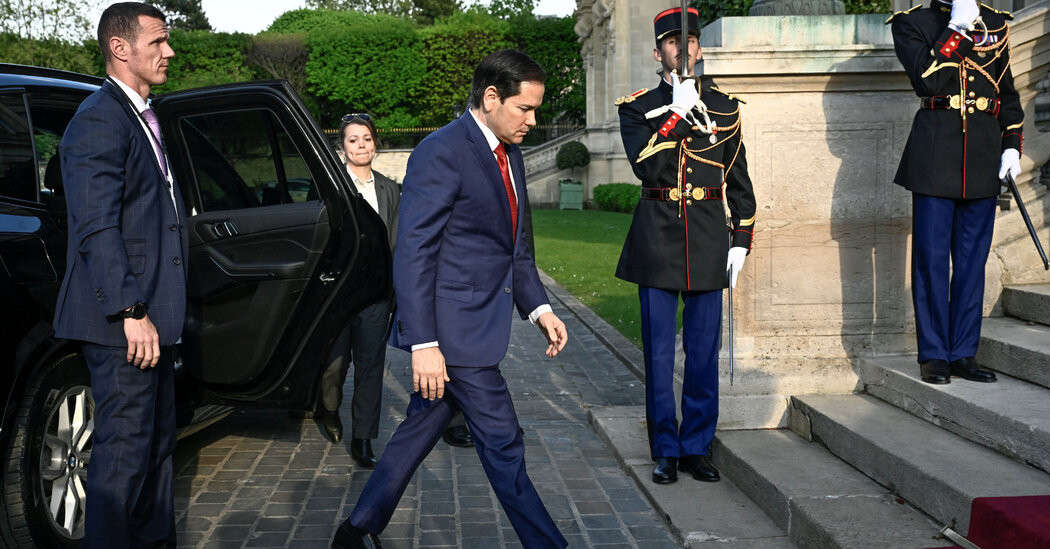

President Trump and Secretary of State Marco Rubio both suggested Friday that the United States might wash its hands of the peace effort.
“If it is not possible to end the war in Ukraine, we need to move on.”
Those were the stark words of Secretary of State Marco Rubio on Friday, as he prepared to leave a conference of allies in Paris, warning that the cease-fire deal that President Trump repeatedly vowed he would secure in “24 hours” may not prove attainable after all.
Mr. Rubio’s threat raised urgent questions about how the United States would navigate the largely stalled negotiations with Russia — and about what would happen if they collapse.
Do Mr. Rubio and Mr. Trump simply wash their hands of the peace effort, and walk away? The option was implicit in Mr. Rubio’s warning that “it’s not our war,” followed by the reminder that “we have other priorities to focus on.”
Or are they actually washing their hands of Ukraine itself? That message was implicit in Mr. Trump’s confrontation with President Volodymyr Zelensky in the Oval Office in February, when he and Vice President JD Vance made it clear to the world that the three-year wartime partnership between Washington and Kyiv was shattered.
That meeting ended, famously, with Mr. Zelensky being expelled from the White House, enormously pleasing one man: President Vladimir V. Putin of Russia.
Whatever Mr. Rubio’s meaning, his words were the latest American gift to Mr. Putin’s cause. At every turn since Mr. Trump’s inauguration, he or his top national security aides have issued statements that played to Russia’s advantage: taking NATO membership for Ukraine off the table, repeatedly declaring that Ukraine would have to give up territory and even blaming Ukraine for the invasion itself.